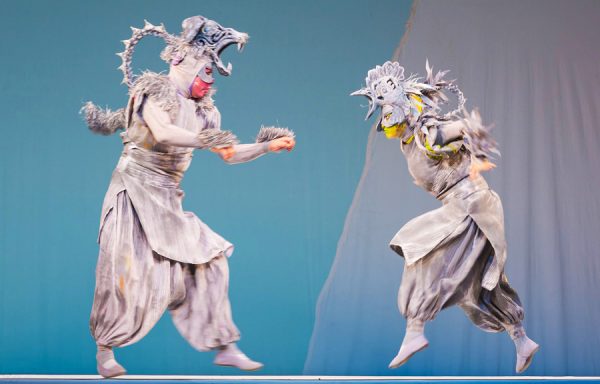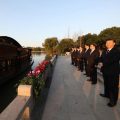
London’s multicultural theater audience is ready for a production of one of China’s classic plays to be performed in Mandarin with English captions, says one of the people who is making it happen.
Joanna Dong is the director of Performance Infinity, the company that is bringing Guangzhou Dramatic Arts Center’s production of Tang Xianzu’s The Handan Dream to the Hackney Empire ahead of Chinese New Year.
“London is open to more culture,” she said. “Theatergoers here in the capital will welcome a production like this because it is a very international city. The story is quite simple and, on stage, it is visually very colorful.”
It is the first time the Guangzhou Dramatic Arts Center has performed in the UK.
Tang Xianzu is often compared to his contemporary, Britain’s William Shakespeare. Last year, it was announced that a replica of Shakespeare’s birthplace in Stratford-upon-Avon will be recreated near Fuzhou, the birthplace of Tang.
The Ming Dynasty (1368-1644) playwright penned four of the most significant works in the Chinese operatic canon: The Peony Pavilion, The Legend of the Purple Hairpin, The Handan Dream, and The Dream of Nanke. They are collectively known as The Four Dreams.
In The Handan Dream, frustrated scholar Lu dreams of a 50-year political career of success and glory, excess and failure, but wakes to find no time has passed.
Dong said one of the aims of Performance Infinity is to promote cultural exchange.
“Over the past five years, there have been few Chinese spoken drama pieces presented in London,” Dong said. “The first I know of was Richard III as part of the Globe to Globe Festival in 2012.”
While there have been productions of Chinese opera, ballet, and other performing arts, Dong said Chinese theater pieces are less common.
Guangzhou Dramatic Arts Center is a leading production house in China. It is funded by the government of Guangdong province and private sponsors.
Wang Xiaodi, its artistic director, wanted to show Chinese culture to UK audiences.
“I want to show how Chinese people communicate with each other through theater,” Wang told The Stage. “What they think and what their attitude is. I think foreign countries would like to know China and the best way to communicate with them is through this kind of cultural exchange.”


